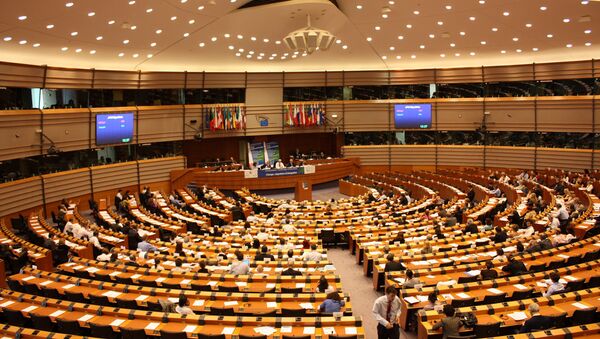The European Union Civil Liberties Committee has agreed draft EU rules to ensure that the right to be presumed innocent until proven guilty is fully respected in member states.
Pres release: #Fairtrials: MEPs beef up draft EU law on presumption of innocence: http://t.co/C4kwANvor8
— EP PressService (@EuroParlPress) March 31, 2015
It follows a string of high profile cases where public figures and famous people, including top footballers, have been questioned or arrested in connection with crimes, including sex offences, and their names have been leaked to the media.
I'd like 2 see EU excel in enforcing rules in its areas of competence, making sure human rights r upheld & money not spent to violate them
— Nils Muiznieks (@CommissionerHR) March 30, 2015
The amended rules would require EU countries to forbid their public authorities from disclosing information, "including in interviews and in communications issued through or in conjunction with the media", or from leaking information to the press "which could create prejudice or bias against the suspect or accused person before final conviction in court".
In a bizarre twist, the MEPs have also suggested that the legal representatives should also be granted anonymity. "Where applicable", legal persons, too, should be covered by these EU rules, the MEPs said.
Rumours of famous people being arrested spread like wildfire throughout the world, and no single body has the ability to prevent the e-rumour mill, no matter what MEPs think.
Yet it is not the first time the EU has passed rules which are impossible to enforce. Or just plain barmy.
• From 1st January 2015 in the European Union, liability for VAT switched from the country where the product is sold to the country where the consumer buys it. But the rules only apply to digital products, like e-books, e-courses, recorded training videos, music or audio downloads, etc. This means digital businesses will be penalized, while other types of small businesses selling physical goods are totally unaffected.
We are serious about #digitalsinglemarket & ask for new EU VAT rules not to hit small innovative companies #VATMOSS pic.twitter.com/CvO8kBzMFj
— Guy Verhofstadt (@GuyVerhofstadt) March 25, 2015
• On March 27, 2015 the EU published its proposed 'Personal Protective Equipment Regulation' which would mean that makers of rubber washing-up gloves would have to prove that they will not disintegrate when put into a bowl full of detergent and water. Under the rules, ordinary domestic oven gloves would have to be certified to show they could withstand heat of 200°C, which would likely increase the cost of gloves by up to 20 percent.
• Turnips and Swedes are two types of vegetable, but, according to EU rules, if a swede is an ingredient in a Cornish Pasty, it can be labelled as a turnip.
• Children's parties are doubtless an awful lot safer, for EU rules that state that balloons and other toys, placed in the mouth, can cause death and injury. Balloons made of latex must carry a warning to parents that children under eight years should be supervised.



